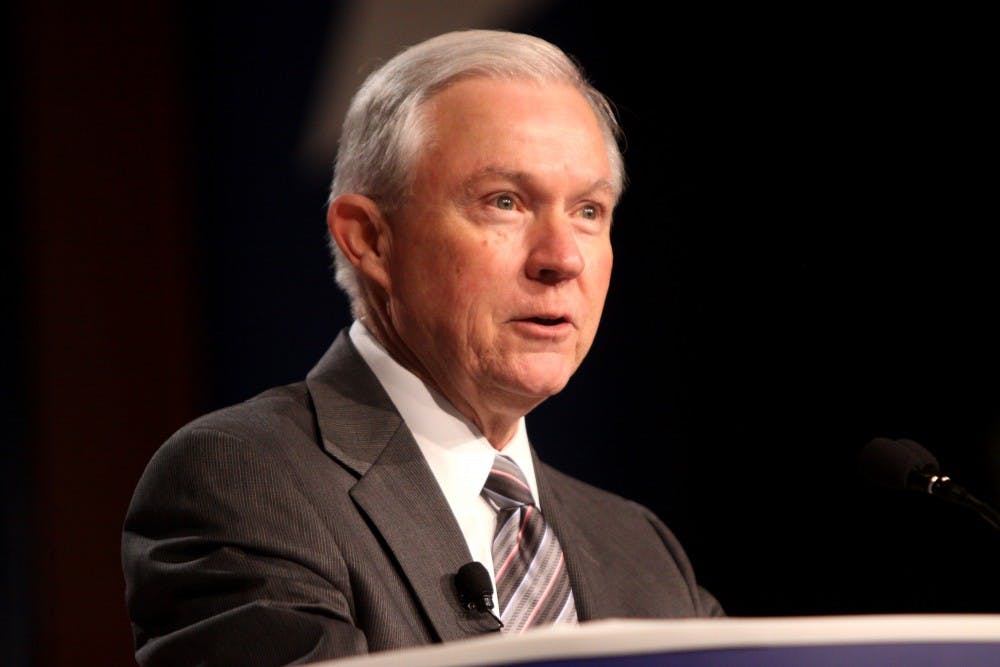Attorney General Jeff Sessions has made several statements about the policies surrounding free speech on some college campuses. Citing examples of campuses like Georgia Gwinnett College — where students are limited to expressing themselves in specific “free speech zones” — Sessions rightly said that there is an issue with the suppression of free speech on college campuses. This is reprehensible, if not outright authoritarian, and needs to be halted.
Cordoning off specific areas of public places where individuals are free to speak impairs the ability of individuals to express themselves. Free speech is not a commodity to be regulated or kept in check; it is an inherent right to human beings, as laid out by Article 19 of the United Nations’ Universal Declaration of Human Rights.
Free Speech is not only a right, it is a responsibility. All of us in present culture need to speak up when we see something that is wrong. Yet, at the same time, it is just as important to listen and to pay attention to what others say.
It is raw hubris that some think their opinion is infallible and unable to be bested by any other. We are all human, and are easily mislead or incorrect, after all. It is thus important to have an open and free “Marketplace of Ideas,” as described by John Milton.
By giving everyone a voice, and by listening to these voices, we have a significant potential to improve society by delineating between the ideas that are good and humane, and the ideas that are evil or ineffective. Instead of silencing groups like the Alt-Right, we must use peaceful means of disproving and de-meriting some of their less-than-savory beliefs. As Sessions mentioned during his speech, “The university is about the search for truth — not the imposition of truth by a government censor.”
If we do not have discourse, we have nothing. Shutting down speakers from opposing political ideologies, or prohibiting the expression of any ideas at all, is a waste of the potential we have. Labeling opposing ideas as “Offensive” or “Hate Speech” is too easy in this day in age. Yet again, Sessions hit the nail on the head by saying, “… who decides what is offensive and what is acceptable?” Offense is a subjective concept. There is no universal truth as to what offends one person, or another.
Freedom of expression should not be regulated or controlled. To do so is to abandon the liberty our forefathers strove to create. In the words of Evelyn Beatrice Hall, in her biography of Voltaire, “I disagree with what you say, but I will defend to the death your right to say it.”



The Slate welcomes thoughtful discussion on all of our stories, but please keep comments civil and on-topic. Read our full guidelines here.